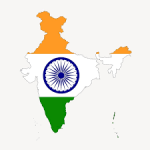With its vast hills and forests, Assam is the home of a variety of medicinal herbs and plants. About 300 types of medicinal herbs and plants are known to exist in abundance in the State. An approximate calculation states that only about 5- 10% of the plants and herbs are commercially cultivated for extraction purposes and hence present a huge resource.

Hence, this sector presents huge resources waiting to be utilized and opportunities exist in plantation & cultivation of medicinal herbs & plants, herbal cosmetics, medicinal plant extract etc.
Some medicinal plants of Assam, their common name, compounds present and medicinal use.
| S. No. | Scientific name | Vernicular name | Family and distribution | Uses |
| 1 | Vanda coerulea | Bhatou
Phul (Assamese) |
Orchidaceae India: Assam, Arunachal Pradesh | Eye drops for the treatment of Glaucoma. Catract and blindness |
| 2 | Renanthera imschootiana | Red Vanda | Orchidaceae
Assam |
Gonorrhoea, control eye sores |
| 3 | Rauvolfia serpentina | Chota chand | Apocynaceae
Assam, |
Sedation, hypertension, brodyeardia, myosis, ptosis, tremors |
| 4 | Aquilaria mallaccensis | Agarwood | Thymelaeaceae
Assam |
Wood is stimulant, tonic, aphrodisiac, carminative, astringent, also used in diarrhoea, constipation, vomiting and snakebite. |
| 5 | Hibiscus manihot | USIPAK (Assamese) | Malvaceae Assam | Tuberculosis, anti-diabetic |
| 6 | Abies spectabilis | Talishpatra (Assamese, Bengali) | Pinaceae
Assam |
Asthma, bronchitis, Carminative, Expectorant, Diuretic |
| 7 | Abroma augusta | Bon-kopah (Assamese) | Sterculiaceae Assam | Diabetes and headache |
| 8 | Arbus precatorius | Latumoni, Rati (Assamese) | Fabceae Assam | Diuretic, emetic, aphrodisiac |
| 9 | Abutilon indicum | Pera-petari (Assamese) | Malvaceae Assam | Anti-inflamatory, astringent, Diuretic |
| 10 | Acacia polyacantha | Samaidh (Assamese) | Mimosaceae
Assam |
Bitter, astringent, anthelmintic |
| 11 | Acalypha indica | Mukuta-manjari (Assamese) | Euphorbiaceae
Assam |
Burns,scabies, syphilis and centiped bites |
| 12 | Achyranthes aspera | Hati-huria (Assamese) | Amaranthaceae
Assam |
Dysentry, piles ulcer, diuretic |
| 13 | Acorus calmus | Bos (Assamese) | Araceae Assam | Chronic diarrhoea and dysentry |
| 14 | Abelmoschus manihot | Tenga Mora (Assamsee) | Southeast Asia | Flowers used to treat chronic bronchitis and toothache |
| 15 | Alocasia macrorrhiza | Bhim Kol Paat(Assamsee) | Araceae Assam | Used to treat knee joint pain and headache |
CONCLUSION
Assam consist of rich varieties of medicinal plants and herbs. Most of those plants and their medicinal uses are known only to the inhabitant and the tribes residing in various parts of Assam. The active ingredients present in these plants may be used for designing some new drugs and pharmaceutical agents which can pave some new alleys in the world of pharmaceutical sciences and be a blessing for mankind. Plant-derived pharmaceutical formulations used to treat diseases.
Alternative medicine is better than our conventional allopathic medication and can enhance the impact of conventional drugs if used properly. Natural product derived from plants may be do not have any side effects till date if used in a specific dose. Some of the medicinal plants work unbelievably in certain diseased conditions according to the tribal people of Assam. Maybe while hunting for drugs in laboratories for certain deadly diseases day and night, researchers and scientists are missing some miraculous and potent phytochemical constituents which could be modified for formulating the drug, which are present in the plants grown in wild and ignorance on the roadside, backyards and valleys of Assam.
Most of the medicinal plants used by local people and tribes of the state of Assam are indigenous and are not known to the vast world of phytochemical science and research. The active ingredients and potent phytochemicals with promising pharmacological properties present in those plants are yet to be explored .





